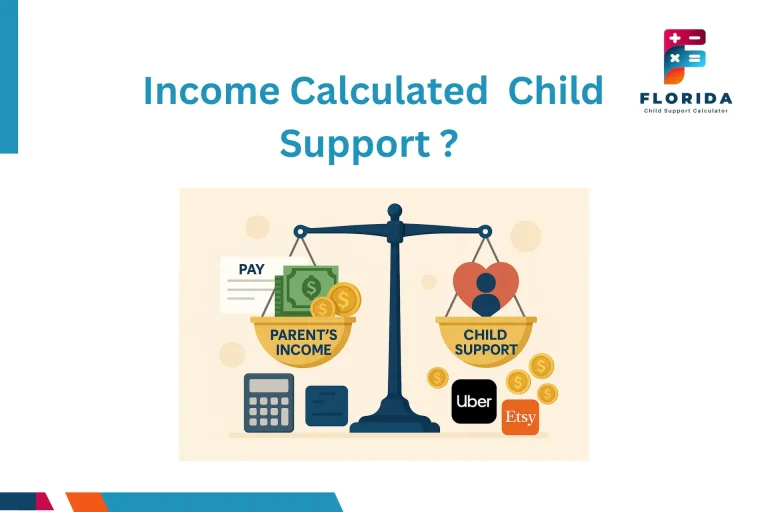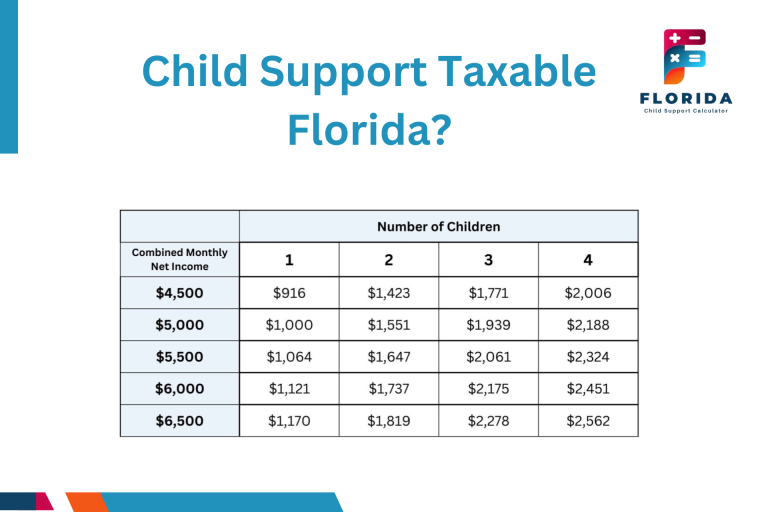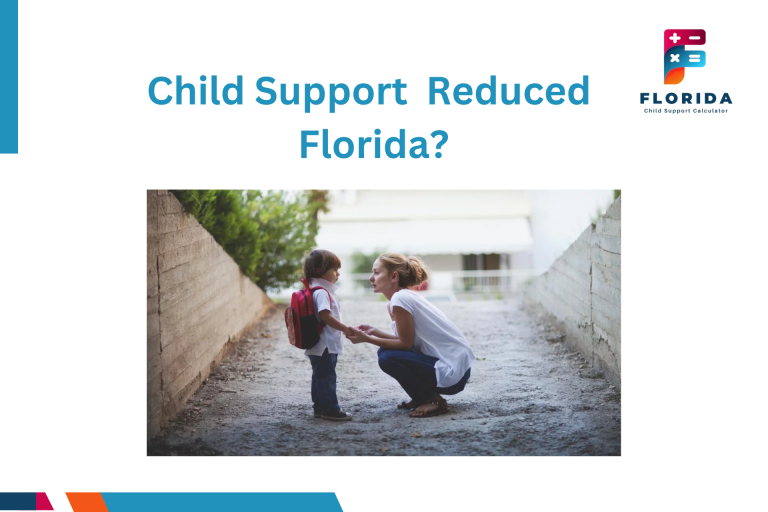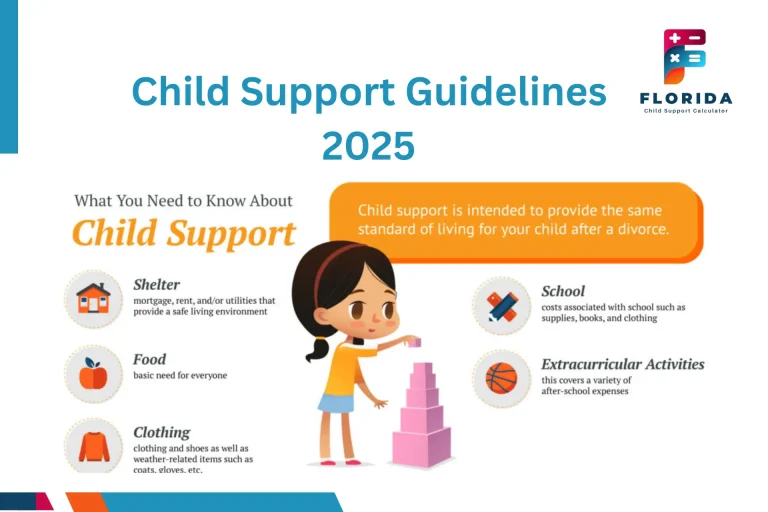What It’s Like to Be on the Paying Side of Child Support
What’s it like to be on the paying side of child support? Honestly? It’s a wild ride, part math, part emotion, and a whole lot of court orders. You’re not just sending money. You’re juggling bills, parenting time, and your own peace of mind.
Sometimes, it feels like you’re paying for a seat at a game you barely get to play in. And when the system doesn’t seem fair, it hits harder than just your wallet.

In Florida, child support rules can be tough to decode. Tools like the Florida child support calculator help, but they don’t tell the full story. Even with Florida’s child support guidelines, things can feel stacked against the noncustodial parent.
How Is Child Support Calculated in Florida and Other States?
Florida doesn’t guess your payment, it uses a mathematical formula. But that formula? It can feel confusing and unfair if you’re the one paying. Let’s break down how it works.
Florida’s Child Support Guidelines Explained
In Florida, courts use the “income shares model”. That means they look at what both parents earn, add them together, and then split the cost of raising the child based on income. Simple, right? Not always.
At the start of this process, the Florida child support guidelines help figure out your expected share. But many parents feel it doesn’t consider real-life needs, like their own rent, groceries, or medical bills.
Also, if one parent has the child more often, that time-sharing difference affects the numbers, too. You can explore how it fits into a full parenting plan and custody balance if you’re already co-parenting.
What Counts as Income?
Not just your paycheck! In Florida, child support is based on gross income, which includes:
- Your salary or hourly wage
- Bonuses or commissions
- Unemployment benefits
- Rental income or side gigs
- Disability or Social Security payments
So yes, even if you’re not working full-time, income can still count. This makes some paying parents feel like they’re being charged for every penny that moves.
If you’re unsure what counts and what doesn’t, this guide to income and child support is worth a look.
Factors That Can Increase or Decrease Support Amounts
Some things make your payment go up or down. These include:
- Health insurance costs
- Childcare or daycare bills
- Parenting time (overnights)
- Other children or dependents
- Shared custody arrangements
For example, if you have your child overnight more than 20% of the time, your payment might be lower. But courts don’t always approve equal time, even when both parents ask for it.
That’s why understanding how custody affects support in Florida is important before signing anything.
The Financial Burden of Paying Child Support
Paying support isn’t just a monthly task, it shapes your whole life. Many parents say it feels like a second rent, with little room left for anything else. Let’s talk about what that pressure looks like.
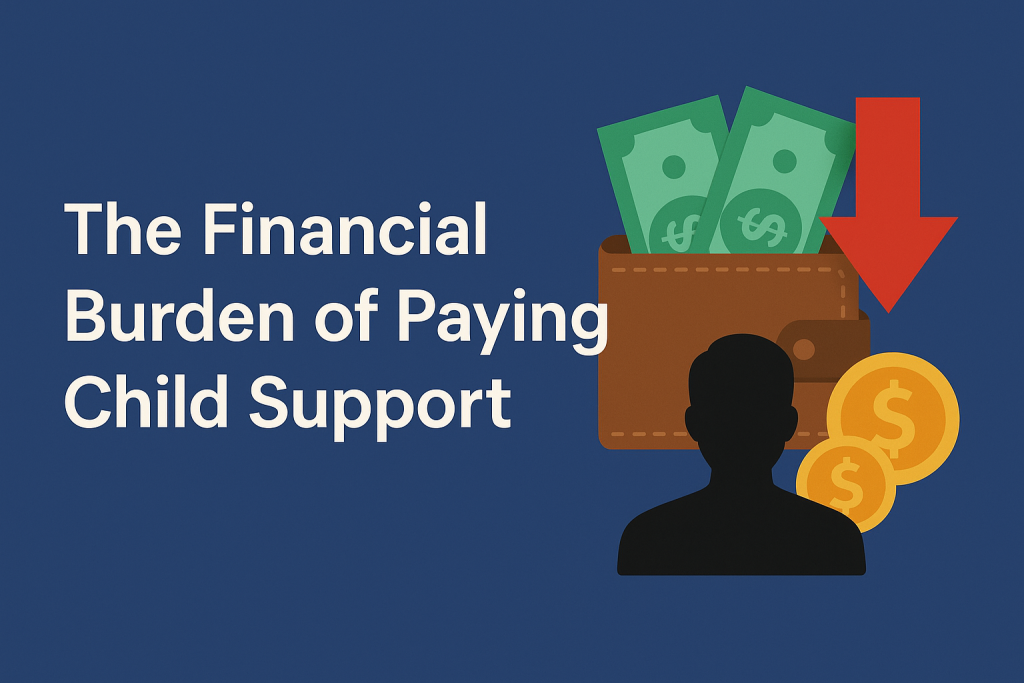
What Happens If You Can’t Afford the Payments?
If you fall behind, things can get serious, fast. Florida may:
- Take your tax refund
- Suspend your license
- Report you to the credit agencies
- Even send you to jail
Many parents don’t know that unpaid child support in Florida doesn’t go away. You still owe it, and interest keeps building. It’s called arrears, and it grows quietly in the background.
The best step is to act early. If you’re in trouble, filing for modification can help before things go too far.
Real-Life Budgeting Challenges of Payers
Let’s be real. Child support doesn’t freeze your bills. You still have to pay:
- Rent or mortgage
- Groceries
- Gas and car payments
- Your own medical needs
Many dads and moms say they live paycheck to paycheck, just trying to stay ahead. And no, child support is not tax-deductible, so you pay full price, without any tax relief.
If you’ve ever asked, “Am I paying too much in child support?” you’re not alone.
Can You Go to Jail for Not Paying Child Support?
Yes, especially if you’re seen as refusing to pay when you can. Judges can send you to civil contempt hearings, where missing payments can lead to jail time, even if your intent wasn’t bad.
The worst part? Jail doesn’t erase the debt. It just pauses your life while the amount keeps adding up.
That’s why it’s smart to track everything, use apps, and stay ahead with tools like this Florida child support calculator.
The Emotional Side of Paying Child Support
This part hits harder than the numbers. The emotional weight of support payments is something many never talk about. But if you’re living it, you know, it’s heavy, it’s lonely, and it changes how you see yourself as a parent.

Feeling Like an “ATM Parent”
A lot of parents say the same thing:
“I send money, but I don’t feel like I’m part of my kid’s life.”
It’s a painful feeling. You do your part financially, yet your voice feels quiet when it comes to decisions or time spent with your child
This happens more when parenting time is limited. And while Florida’s parenting rules are supposed to support fairness, it doesn’t always feel equal.
Impact on Mental Health and Self-Worth
The stress can build fast. You might feel:
- Left out
- Overlooked
- Judged
- Powerless
Some parents experience depression, sleep issues, or anxiety. And many say they hesitate to talk about it, because no one wants to hear a “complaint” from the one paying.
It’s a silent struggle, and unfortunately, there’s little emotional support built into the system. But awareness is growing, especially among fathers paying child support who are raising their voices online.
How Lack of Recognition Affects Paying Parents
You’re doing a lot. But when no one sees it, or worse, assumes you’re “doing the bare minimum,” it stings.
There’s rarely public praise for consistent payers. No medals for never missing a payment. And if you’re a dad, forget about being seen as an equal parent by default.
That’s why conversations around child support fairness need to include the payer’s side, too, not just numbers on a page.
Modifying Child Support Orders When Your Situation Changes
Life doesn’t stay the same, and neither should your support order. But getting the court to see that is often harder than it should be. Let’s talk about how and when changes are possible.
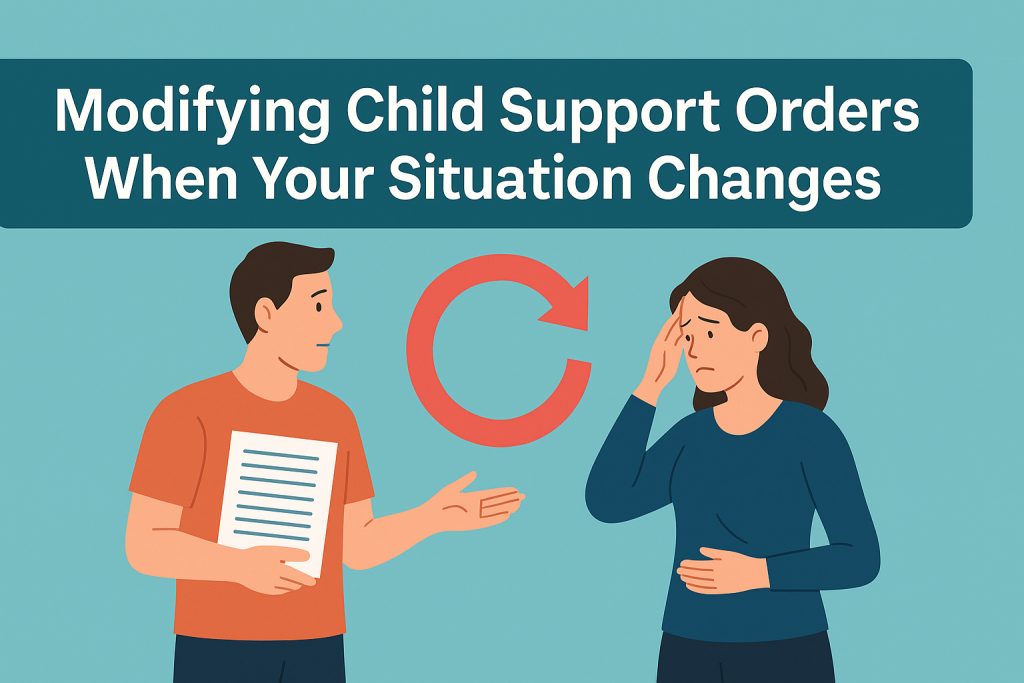
When Can You File for Modification?
You can’t just say, “I’m broke.” You need a real, proven change in your situation. This could be:
- Job loss or lower income
- Serious illness or disability
- A new child or a bigger family
- Change in custody or parenting time
If your paycheck shrinks but support stays the same, you’ll fall behind fast. In Florida, filing a modification request is the legal way to ask for a fairer amount.
Even if you haven’t missed a payment yet, a quick change in income can flip everything. So don’t wait until you’re in trouble.
What Evidence Do You Need?
The court won’t take your word for it. You’ll need:
- Recent pay stubs or tax returns
- Proof of medical bills or disability
- Any new custody agreements
- Documents showing changes in living expenses
Start collecting these before you file. If you’re unsure what counts, see how income is calculated in Florida; it can guide what to show.
Judges need real numbers. So bring your facts, not just feelings.
Common Pitfalls That Delay Modification Requests
Many parents mess up the timing or paperwork. Some:
- Don’t file early enough
- Miss deadlines
- Use outdated forms
- Forget to notify the other parent
And sometimes, even with proof, the court may not agree. That’s why it’s good to understand what influences support orders before heading to court.
Doing it right can mean the difference between relief and rejection.
Shared Custody and Its Impact on Child Support Payments
Many parents ask: “If we both share time, why do I still pay so much?” That’s where custody laws meet court math. Let’s break down how time with your child can lower what you owe.

Can Shared Parenting Lower Your Payments?
Yes, it can. In Florida, more overnights usually mean lower child support. Courts use a sliding scale; if your child sleeps over at your place at least 20% of the time, your amount may drop.
But it’s not automatic. You have to show this in the parenting plan, and the judge has to approve it. To see how custody and money connect, this breakdown on the calculation is helpful.
Still, many paying parents say they feel like they’re doing 50/50 parenting, but not getting 50/50 credit.
What If the Court Denies Shared Custody?
Even if both parents want equal time, the court might say no. They may think:
- The other home isn’t “stable enough.”
- The child needs consistency
- There’s a conflict between parents
This hurts when you’re doing your best and still feel pushed out. In such cases, your financial responsibility stays high, even if you’re present in your child’s life daily.
If this has happened to you, custody fairness in Florida is something worth looking into. You may find ways to push back legally or adjust the agreement.
What the System Often Gets Wrong About Paying Parents
Child support isn’t always fair. And it’s not because people don’t care, the system still treats many payers like they’re not involved. That needs to change.

Lack of Credit for Involved Parents
You show up. You pay. You even attend school events or doctor visits. But somehow, you’re still seen as “less of a parent.”
The legal system often gives full credit to the parent with more time on paper, not the one who’s trying their best in real life. This is especially common among dads who pay support and still get little say.
Support isn’t just about money, it’s about effort, too.
Overpayment Problems and No Refunds
Here’s a frustrating truth: if you overpay, you likely won’t get it back. If you send extra for birthdays or school trips, it’s often treated like a “gift”, not credited toward future support.
Worse, if your payment amount should’ve been lower but wasn’t adjusted in time, those past overpayments are gone. That’s why knowing your numbers through a support worksheet can help protect you.
Money matters. And every dollar counts when you’re on the paying side.
Why Fathers Often Feel Sidelined
Many fathers feel they’re financially responsible but emotionally invisible. They say the system talks about “best interest of the child,” but forgets the father-child bond.
This isn’t just about money, it’s about being seen, respected, and treated as a real parent. Until that happens, many dads will keep feeling like they’re parenting from the outside in.
If this sounds familiar, take a moment to read how child support laws are structured in Florida. It can help you understand your rights and your fight.
Real Stories from the Paying Side: Real-Life Experiences
When we talk about child support, we often forget the real people behind the payments. These stories aren’t just sad or angry, they’re honest. Let’s hear what life feels like when you’re the one sending the check.
“I Pay But Rarely See My Child”
Some parents pay every month, on time, without fail, yet barely get to see their child. It’s heartbreaking. You feel like you’re funding a family you’re not part of anymore.
In many cases, limited parenting time and high payments go hand in hand. Florida’s system considers overnights, but not always fairly. That’s why understanding how parenting time affects your payments can make a big difference.
You’re not paying to stay away, you’re paying to support. Still, it doesn’t always feel that way. “Yes, some moms pay support too, but this blog focuses mostly on dads’ side.”
“The Court Doesn’t See My Side”
Many parents, especially fathers, say they feel invisible in court. Even when they show proof of involvement, parenting time, or financial hardship, it often feels like no one listens.
That frustration grows when decisions seem one-sided. If you’ve ever sat through a hearing thinking, “I did everything right, but I still lost,” you’re not alone.
Sometimes, knowing your legal rights and how Florida judges make child support decisions gives you a better shot at fairness next time.
Coping Strategies for the Paying Parent
Paying child support can feel overwhelming, but you don’t have to drown in it. Here are some real-life tips that can keep you afloat, both financially and emotionally.

Budgeting and Financial Planning Tips
Start with the basics:
- Make a list of all your bills
- Set aside your child support first
- Track where every dollar goes
- Use apps to monitor your spending
Even if things are tight, small changes help. Want to know how much to expect or prepare for? Try using the Florida support calculator tool to get a clear number.
And remember, cutting back doesn’t mean you’re failing. It means you’re adjusting.
Legal Avenues for Fairness
If you feel your current order is unfair, you have options:
- File for modification
- Document your parenting time
- Bring evidence of income changes
- Work with a child support attorney, if needed
Even small changes, like gaining more overnights, can impact what you pay. Learn how modifying child support works in Florida before your next court date. The system may feel stiff, but it’s not unmovable.
Emotional Support and Online Communities
You’re not the only one feeling this way. Thousands of paying parents connect online every day to share stories, vent, and find answers. Look into:
- Facebook groups for divorced dads/moms
- Reddit communities like r/ChildSupport or r/Divorce
- Local support meetups or virtual therapy groups
Talking helps. It doesn’t solve the system, but it lifts the weight a little. And if you ever wonder whether the emotional burden you carry is valid, it is. Support enforcement might push you, but support doesn’t mean silence.
FAQs About Paying Child Support
Sometimes you don’t need a long story, you just want straight answers. Here are real questions paying parents ask every day, with answers that help.
Final Thoughts: You’re More Than a Paycheck
It’s easy to feel like all you do is pay. But the truth is, you matter way beyond the dollars you send. And if no one’s said it lately, thank you for showing up.
Reclaiming Your Role Beyond Payments
Being a paying parent doesn’t make you less of a parent. Your child needs more than support, they need your time, words, and heart.
Whether you’re in their daily life or just on weekends, your presence counts. If your time is limited, try getting clarity on Florida’s parenting time structure; it may open new doors.
Support isn’t just cash. It’s care, too. “You’re not alone; many parents are calling for reform.”
Moving from Resentment to Resilience
It’s okay to feel tired. Angry. Even bitter. You’ve done your part and still feel unseen. But don’t let it stop you from being the parent your child needs.
Shift the focus from pain to purpose. If you’ve made mistakes, fix them. If you’re doing great, keep going. For those stuck in arrears, this child support enforcement page explains what comes next.
This isn’t about being perfect. It’s about staying present, even when it’s hard.

